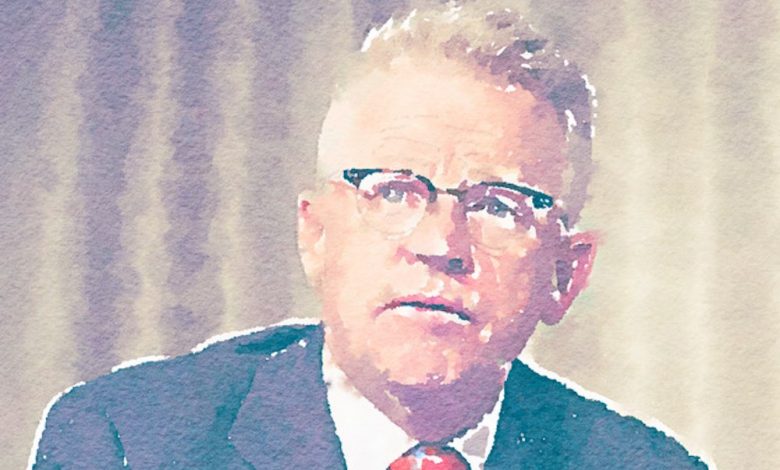Covid reverses the primacy of our choices over our needs

With the relaunch of the Splash website we asked some famous names in shipping to pen their thoughts on how our industry – and society at large – might change after Covid-19. Kicking the series off today is Paddy Rodgers, the former Euronav boss, who has just joined the board at V.Group.
After eight decades of economic growth and population expansion humanity has covered the habitable regions of the Earth. With rising sea levels, drying landscapes prone to fire and erosion, and polluted air, human activity is now shrinking those regions of the Earth that are habitable. Covid-19 is not another different thing, it is part of the same thing. Humans press in on nature, encounter new viruses, and the density of poorly cared for people, provides a chance for those viruses to flourish. If we take a systemic approach to the virus and its wider causes we might see it as sounding an alarm for humanity to change.
Some people have discovered and created mutually supporting communities, and happiness in being rather than spending, but will this stay? Or will it all be over in time for Christmas shopping?
Lockdown has been an interesting response, because of the social-political implications, rather than the medical-biological ones. In the last eight decades of growth, the forefront has been an idealised sense of individual freedom, the ego, the I. As this is expressed in ownership and consumption it is frequently at the expense of traditional community. This seems to be replaced with communities of identity selected by the individual through consumer wishes or choices, which shape production, and behaviour, even language.
Covid reverses the primacy of our choices over our needs. It definitely redefined key workers and hopefully seafarers will always be counted in that category. It has catapulted video conferencing from the edges of business use, to the heart of most lives, and most families. Children are schooled at home, and exams, that typically define early life, cancelled. Maybe Greta was right not to go to school? As people learn to stay home and commute over the internet will it impact relative house prices? Will borders harden and globalisation recede? Is a carefree lifestyle over, as like Lady Macbeth we wash and rewash our hands? In most countries society is in a state of high anxiety as life is unrecognisable, so predicting the future does not have an easy jumping off point. Some people have discovered and created mutually supporting communities, and happiness in ‘being’ rather than ‘spending’, but will this stay?
Or will it all be over in time for Christmas shopping? If the sole focus is on I, in isolating and immunising all for the benefit of individuals with the power to pay, the virus may recede but the systemic risk will remain, the alarm switched off.
Humanity is poor at judging risk and common sense does not apply to complex uncommon events. From the Lloyds insurance market collapse over the long tail risks of asbestos, to the financial crises caused by sub-prime mortgages, risks are accepted in the hope they will not materialise. The response to the risk materialising is often to find a way to reverse the effects, rather than learning to avoid risk in the first place, look at QE being exercised through an asset repurchase programme. This resulted in no real growth in personal disposable income in a decade so there are no reserves in the system (think savings and debts of ordinary people). Now there will be depression, economic and psychological, as well as extreme poverty, even in developed countries, unless there is massive government intervention. But no one knows how to pay for it, another round of QE anyone?
The response to the risk materialising is often to find a way to reverse the effects, rather than learning to avoid risk in the first place
On a small goldilocks planet (not too hot, not too cold!), where we all need to breathe, we cannot work this problem out without a common purpose and shared values that address the fact we are all in this together. The post-Second World War institutions do not look fit for purpose, but perhaps the internet and social media have found their time. Act now, jump on a Zoom call and reach out.
For the complete picture of how the coronavirus is affecting shipping, check out our dedicated archives here.

I’ve not had the pleasure of meeting Paddy Rogers.
But I agree with every word.